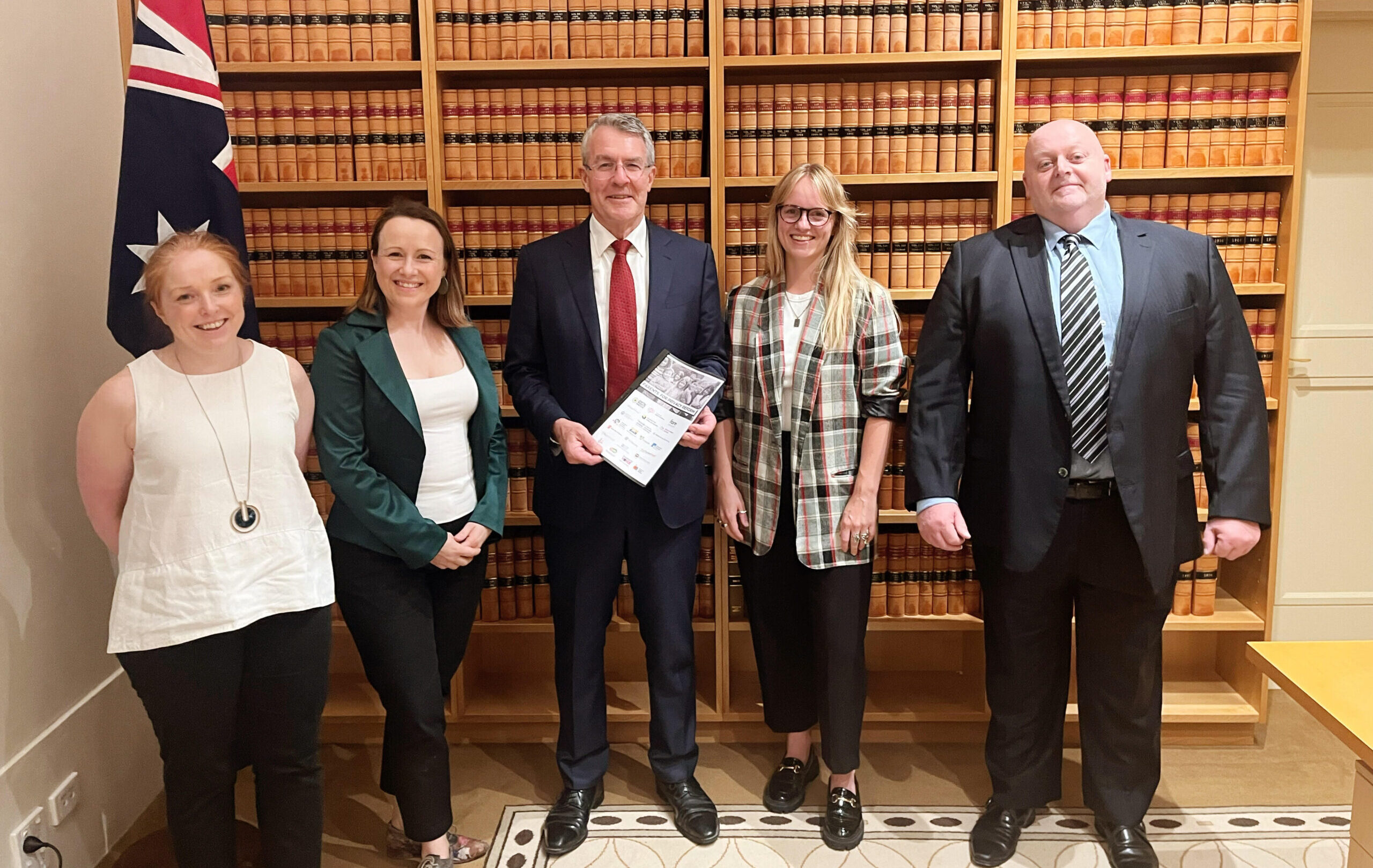
The Australian government must act on its commitment to bold reform of Australia’s Privacy Act in order to uphold the safety, wellbeing and autonomy of children, according to an open letter today delivered to Attorney General Mark Dreyfus. The Open Letter was coordinated by Digital Rights Watch, and has been co-signed by 22 organisations across public health, children’s rights, and privacy advocacy. It also has over 800 signatures from members of the public in support.
The Privacy Act has been the subject of a years-long review process, which has involved extensive community engagement. The latest report from the Attorney General’s department made dozens of recommendations, which were largely accepted by the Australian government in September 2023. The next stage is for a bill to be tabled but advocates are growing concerned about when this will take priority.
Australia’s commitment to privacy rights lags behind similar liberal democracies, posing a particular problem for children given their specific vulnerabilities. There is an urgent need to update Australia’s privacy laws for the twenty-first century.
The letter highlights the negative impacts of invasive data-driven business models upon children—and indeed everyone—that the Privacy Act currently leaves unchallenged. It warns of the harms caused by endless engagement, targeted online advertising, rampant misinformation, and the normalisation of surveillance as the price for participation in online life.
Quotes attributable to Lizzie O’Shea, Chair of Digital Rights Watch
“As a parent, I worry about how my child’s data will be taken and used by all sorts of shadowy companies that do not have his best interests at heart. Our laws currently allow companies to create detailed profiles of children often without their consent, sometimes without their parents even knowing. Unless we have bold reform of our privacy laws, we are doing a disservice to the next generation.”
“This coalition of organisations demonstrates that privacy is important for a broad remit of people, social causes and organisations, and shows a clear public mandate for meaningful reform. This isn’t just an issue close to the heart of privacy experts and advocates, it’s also essential to protect children’s safety and wellbeing, public health initiatives and to uphold our fundamental rights and freedoms in the digital age—privacy reform benefits everyone, except those who seek to exploit our data for their own gain.”
Quotes attributable to Tim Singleton Norton, parent and co-founder of Digital Rights Watch
“It’s obvious to any parent that the far reaching and predatory power of social media and EdTech companies violate our children’s privacy. We need to bring these industries into check, and protect our children’s right to grow up without being constantly watched. Tech has an important role to play in education, but this has to be balanced against the right to privacy. Current laws have not been able to keep pace with these developments and must be reformed urgently.”
“The next generation of digital users are already hyper-aware of the privacy violations that have become normalised in our daily lives. Our privacy laws have utterly failed to keep up with this changing landscape, and place far too much power in the hands of corporate tech companies. Parents are expected to keep up to date with a level of technical understanding that is often beyond their capacity, just to ensure that their children’s privacy and safety are maintained. It’s time that we reform our privacy laws in a way that restores rights and protects our children – both in and out of the classroom.”
Media contact
The following spokespeople are available for interviews:
- Lizzie O’Shea, parent and Chair of Digital Rights Watch
- Tim Singleton Norton, parent and co-founder of Digital Rights Watch
To arrange an interview contact media@digitalrightswatch.org.au
The full text of the letter and organisational signatories are included below. (Download PDF here)